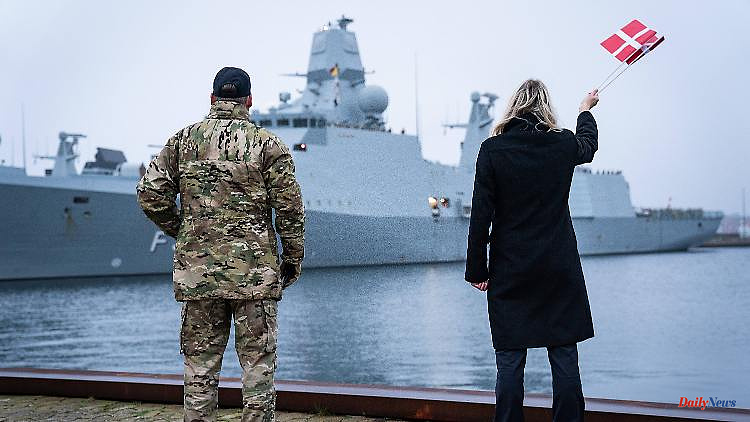At the beginning of June, the Danes voted by a clear majority to participate in the EU's common defense policy. Now Copenhagen announces the upgrading of its naval forces. The reason for this is also Russia's military expansion policy.
Against the background of the Russian war of aggression against Ukraine, Denmark has announced that it will massively expand its naval forces. Defense Minister Morten Bodskov said at a meeting with industry representatives that his country will invest 40 billion crowns, the equivalent of around 5.38 billion euros, in the fleet over the next 20 years and is ready to build its own warships.
The situation in Europe is "serious", said Bodskov. The "just survived" corona pandemic and the war on the continent would have created "problems for the security of our supply chains". It is "unacceptable for the Danish defense, especially in times of war in Europe," to have problems building ships and other equipment." That is why the government is now acting to strengthen the fleet.
Bodskov did not specify the exact number of ships to be built. However, a significant number of vessels - including patrol boats, coastguard vessels and frigates - are obsolete and in need of replacement.
In a referendum at the beginning of June, the Danes voted by a two-thirds majority for a historic change of course in national defense policy - by paving the way for participation in the common EU defense policy. In June, Prime Minister Mette Frederiksen rated the result as a "very important signal" to the allies in Europe and NATO, as well as to Russian President Vladimir Putin.
In 1992, NATO founding member Denmark rejected the Maastricht Treaty, also in a referendum, which also envisages a common foreign and security policy for the EU. In Sweden and Finland, too, the Russian war of aggression against Ukraine triggered a fundamental change of course in security policy. These two countries gave up decades of neutrality in May and applied for NATO membership.












